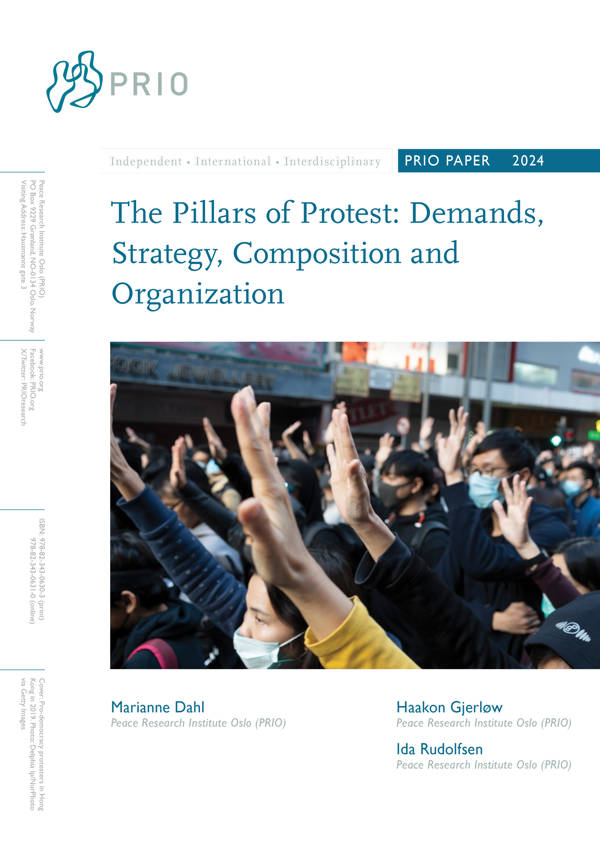This report examines the relationship between mass mobilization and democratic change, drawing on previous research and new data. We focus on four central aspects determining mass mobilization success: Movement demands, campaign strategy, the social composition of the campaign and level of organization. Mass movements are more likely to succeed when they call for the end of the regime through non-violent strategies, mobilize large numbers of people using diverse tactics, engage a broad coalition that cuts across social divisions, and are grounded in or supported by existing organizational networks. These factors are crucial because they affect two essential elements for success: the size of the movement and the likelihood of loyalty shifts within the regime.
Dahl, Marianne; Haakon Gjerløw & Ida Rudolfsen (2024) The Pillars of Protest: Demands, Strategy, Composition and Organization. PRIO Paper. Oslo: PRIO.










